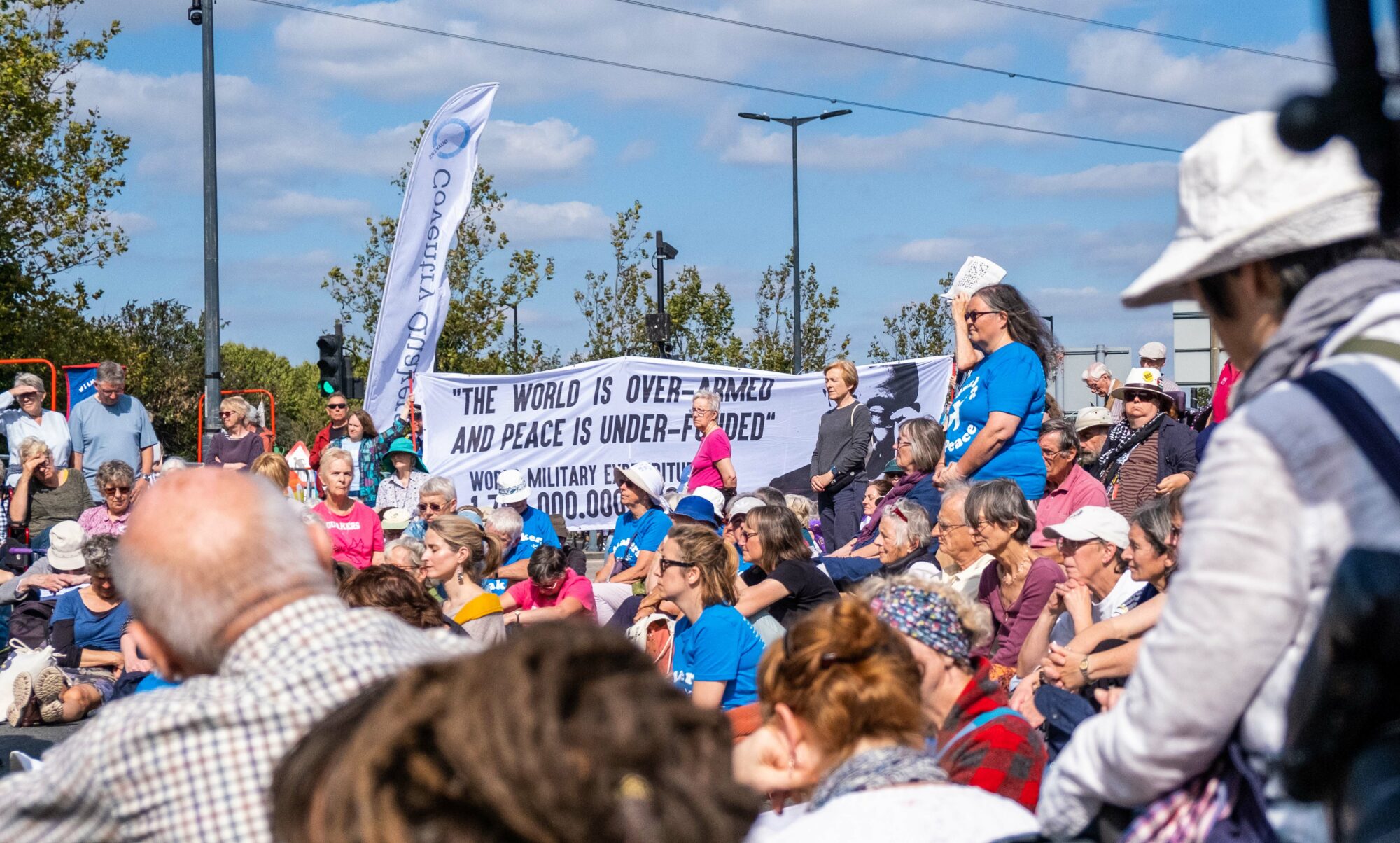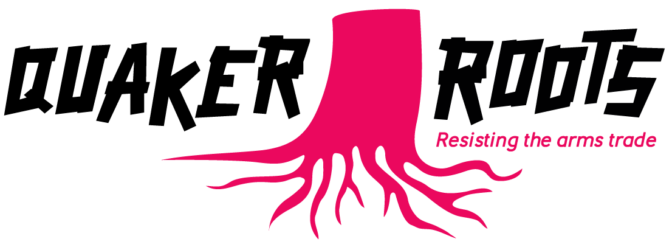Many thanks to Salih for speaking at our event The Human Cost of War on 19th July. You can read Salih’s reflections below, based on his experience of war in Sudan. While on the day we focused on human stories, for this post Salih felt it important to give us some context to the violence in Sudan. The video of our speakers is also available.
Country profile
Named the republic of Sudan after the independence from the British colonial rule in 1956 is in Northeast of the African continent (Horn of Africa Region). Boarders the Central African Republic to the Southwest, Chad to the West, Egypt to the North, Eritrea to the Northeast, Ethiopia to the Southeast, Libya to the Northeast, South Sudan to the South and the Red Sea to the East. It has population of forty million people and occupies an area of 728,215 square miles (use to make Africa’s largest country until the secession of South Sudan in 2011). The Capital city is Khartoum located in the centre of the country where the blue and White Nile Rivers joint and create the great Nile River running down North stream to its Mediterranean estuary in Egypt.
Political history and previous conflicts
Due to failure in nation-state building, rule of law and multicultural governance, the country never experiences sustainable peace and political stability since the independence in 1956, when it descended into a series of violent Intra-state conflicts. the first war broke out in the south of the country in 1955 just a couples of months before the Independence Day. The south Sudanese (dominantly native African Christian and atheist groups) rejected their annexation to the North (mainly Muslim Arabs descendants’) which dominate the new national state and control the natural resources with the aims to deculturize and assimilate the native African Sudanese into state adopted Arab-Islamic traditions to consolidate grip of power and hegemony. This war alone, has cost more than 1.5 million lives, millions other injured and internally/externally displaced civilians. Eventually, this war ended through a political settlement in 2004 which guaranteed the right to self-determination for the South Sudanese.
In 2011 through a popular referendum, the South Sudanese overwhelmingly opted for independence and secession from the motherland however, new violent civil conflicts emerged in other parts of the country including Darfur region which, experienced a brutal and ferocious response by the Sudanese national army backed by allies the notorious Arabs militias (Janjaweed). Allegations of heinous atrocities: genocide, ethnic cleansing and war crimes perpetrated by the Sudanese army and the Janjaweed militias against the black Darfurian civilian population prompted an international investigation by the United Nation International Criminal Court ICC in The Hauge/The Netherlands. Eventually, an arrest warrant against by then sitting president Al-Bashir and other state officials was issued by the ICC but not executed to the day due to lack of cooperation by the current Sudanese government.
Current active violent conflict
In April 2019, the notorious regime of president AL-Bashir was toppled after months of peaceful popular protest, strikes and civil disobedient raising expectation of the Sudanese people for transition to civilian democratic that would profoundly resolve historical grievances, injustice and remove root-causes of conflicts through a transitional justice and national reconciliation processes.
transitional power sharing arrangement between civilian and military leaders was agreed to stir the country and prepare for a general election in three years period. soon nevertheless, became clear that there is a serious security threat and impediment to the entire political transition process as the Janjaweed militia transformed itself into a powerful paramilitary (Rapid Support forces RSF) that rivalling the legitimate national army with political ambitions, economics influence and strong external relations with some regional and global powers such as Russia which has vital interests in Sudan and uses the Janjaweed militia as a proxy to materialize these interests. Russia has secured the flow of weapons and military supplies to the Janjaweed militia through Wagner Group PMC in return for free access to gold sources in different parts of the country.
The situation of having two separate military powers in one country has created political and economic fragility and volatility as the power-struggle between the two for the control of the Sudanese state institutions and the national wealth intensified by; military built-up by both sides, coupled by divisive political polarization and mobilization among various Sudanese communities increasing the likelihood of violent conflict.
On the morning of April 15th 2023, the rhetorical rivalry between the national army and RSF forces took a different violent course when clashes of airstrikes, artillery and gunfire were reported throughout the country. however, the intense fighting concentrated within the Capital city and Darfur region to the west. All regional and international mediation efforts to stop the fighting failed so far as the war still waging on claiming thousands of innocent lives, destroying infrastructures, impeding provision of basic social services, and threatening to spill over beyond to the neighbouring countries.
The impact on civilian population
Unequivocally, the impact of the war in Sudan so far is colossal on all aspects of the country. Images and videos from news outlet and social media reflect the level of damage and destruction to vital public infrastructures, state buildings and private properties. These material cost of war nonetheless, are possible to be repaired and rebuild when the war ends. the human cost however, is likely to affect generations to come. As the reports on 25th July 2023 suggest, between 5,000 and 7,000 civilians were killed and 10,000 to 15,000 others injured as a result of the fighting between the two forces. Furthermore, reports from June 2023 estimate more than 3.5 million civilian Sudanese have been internally displaced while 1.5 million others fled to neighbouring countries and became refuges.
Reports have indicated that civilians of all ages are experiencing various human rights abuses, including sexual assault and gender-based violence, as well as looting and shortages of food, water, healthcare, including reproductive healthcare, fuel and other basic goods and services, and collapse in communication channels. Densely populated residential areas of Khartoum, Bahri, Omdurman and towns in Darfur and North Kordofan are facing electricity cuts, a lack of healthcare and basic services, while running out of food, water, and medicines. Some infrastructure and services, including 11 hospitals that have been attacked, have collapsed. A shelter for girls with disabilities in Khartoum was shelled leading to the death of a girl and injuring another. A shelter for older women in Khartoum was reportedly also damaged.
Arms trade fuelling violent conflicts in Sudan
The proliferation of arms and ammunition in Sudan may originally, a legacy of the cold-war era and spill over from conflicts in the region. Various Sudanese governments however, played crucial roles in arming non-state militant groups in the country fuelling a cycle of violent intrastate conflicts and political unrests as in the case of South Sudan, southern regions of Blue Nile, south Kordofan and Darfur region.
In July 2004, in response to the global outcry over the humanitarian crisis being caused by the violent in Darfur, the United Nation Security Council adopted Resolution 1556. The resolution established a ban on the sale of arms to non-governmental groups and individuals, including the Janjaweed militia. The resolution moreover called on the Sudanese government meet its obligation of disarming Janjaweed militia. Nevertheless, Resolution 1556 fell short to include other government backed militia. United Nation Resolution 1591 in 2004 however, extended the ban of arms sale to include the Sudanese national security forces. Since the illegal flow of arms continued despite the previous two resolutions on arms embargo, comprehensive arms embargo Resolution 1945 in 2010 was therefore adopted by all member states of the Security Council with only China abstaining.
According to HART 2015 report on the arms trade in Sudan, Sudan is one of the heavily armed countries in the world as the accessibility of small arms and light weapons (SALW) has been a cause of regional and global concern as it instigates and escalate violent conflicts and instability. China and Russia are evidently; are the main suppliers of arms to Sudan in return oil and gold.

